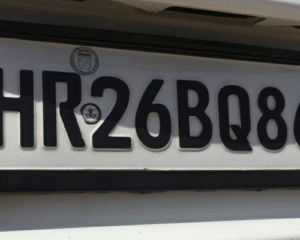Landlords beware : how voluntary disclosure can save you from hmrc fines

Let Property Campaign
HMRC has intensified its drive to secure rental income compliance over recent years with the Let Property Campaign (LPC) being one of them. This heightened attention has put many landlords in panic mode regarding their tax status, especially if they have previously received undeclared income or made errors on their tax returns. However, there is a way for landlords to stay ahead, known as voluntary disclosure.
What is Voluntary Disclosure?
Voluntary disclosure is when a taxpayer voluntarily informs HMRC of any previously unreported income or mistakes on their tax returns prior to HMRC discovering them themselves. For rent income, this can be declaring previously undeclared rent or correcting errors on returns received.
By volunteering to inform of the inaccuracies, landlords can avoid harsher penalties and establish good faith. HMRC is likely to view early disclosure in a more favourable light, reducing fines and charges on interest significantly in some cases compared to cases detected by investigation.
Why Landlords Should Resort to Voluntary Disclosure
LPC has lead to more intensive scrutiny of rental income returns, and failure to comply can result in hefty penalties. Doing nothing and waiting for HMRC to come to you typically means receiving harsher penalties.
Making a voluntary disclosure allows landlords to:
· Limit the level of penalties imposed
· Enjoy the potential to reduce interest payments on overdue tax
· Avoid criminal investigations and prosecution
· Gain peace of mind through compliance
Doing so shows HMRC that you take your responsibilities seriously, and this could be an actual game-changer in the event of any future reviews.
Making a Voluntary Disclosure
Landlords who want to make a voluntary disclosure should do the following:
· Get the right records together: Obtain copies of all the tenancy agreements, rent statements, and bank statements that relate to the secret income.
· Calculate the correct tax owed: Include any associated costs to ensure it is correct.
· Inform HMRC: Call HMRC’s Let Property Campaign team or use their formal voluntary disclosure facility on their website.
· Obtain professional help: Because the case is complicated, hiring an accountant or a tax consultant who has expertise in taxing rental property would help make the disclosure complete and accurate.
Rapid and sufficient action would need to be undertaken in order to take advantage of voluntary disclosure benefits.
What Happens after Disclosure?
When HMRC get your disclosure, they will review the information and work out how much tax you owe and how much penalty there is. Because you approached them voluntarily, the penalties are often lower than if HMRC have discovered the error by themselves.
Occasionally HMRC will request additional information or carry out a compliance check, but being willing to work with them can help to ease the way through.
Conclusion: Be Ahead Not Playing Catch-Up
The Let Property Campaign has brought rental income tax compliance into the limelight for many UK landlords. While the prospect of admitting past errors can be daunting, voluntary disclosure is the most effective way to reduce penalties and settle outstanding tax liabilities in an orderly way.
If you’re unsure about your rental income declarations or want to explore the voluntary disclosure route, consulting professionals with expertise in property taxation can provide clarity and support. Taking action early not only protects your finances but also your peace of mind.








